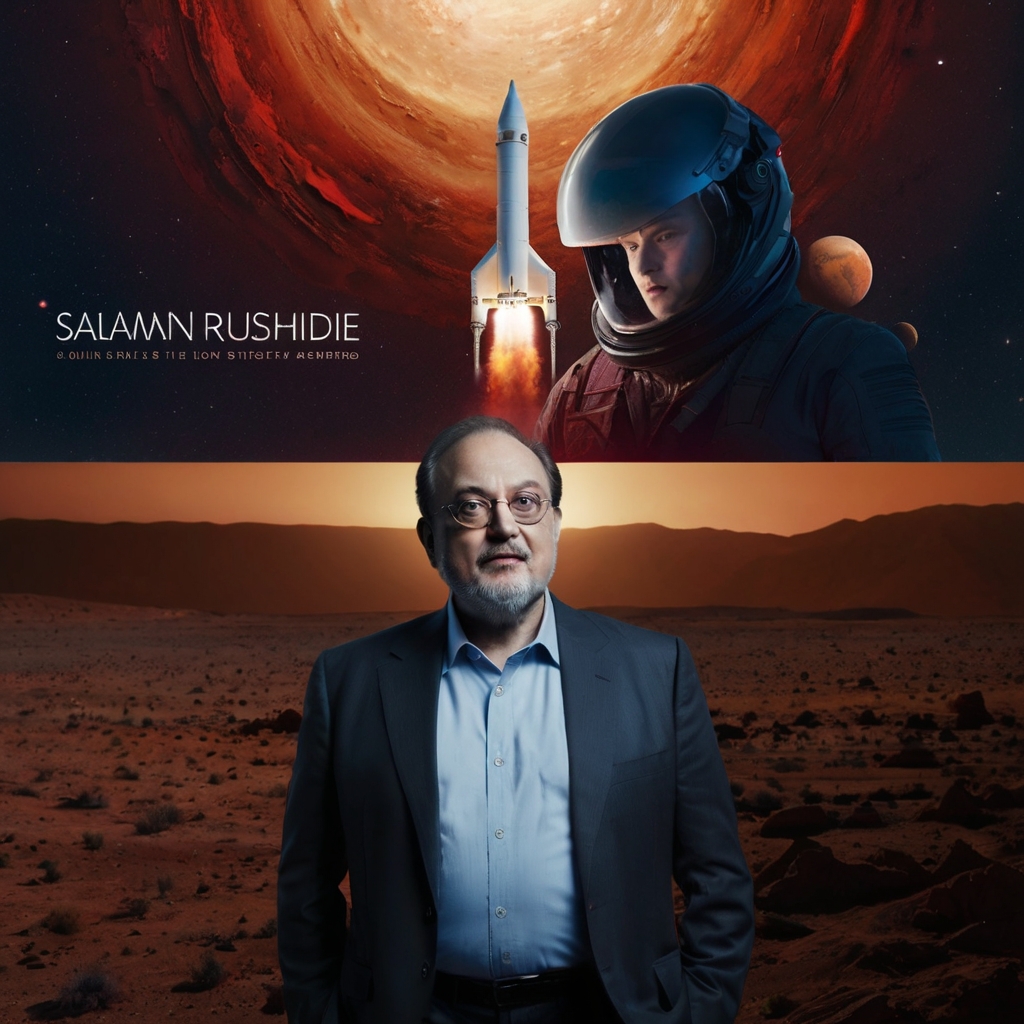In an era where space exploration is at the forefront of technological innovation, Elon Musk’s ambitious plans to colonize Mars have ignited both enthusiasm and criticism. Among the critics is renowned author Salman Rushdie, who has publicly expressed his disapproval of Musk’s Martian aspirations. Rushdie contends that Musk’s pursuit to “be the first man on Mars” is not only an impractical dream but also a venture that diverts attention from pressing issues on Earth.
The Controversy:
Elon Musk, CEO of SpaceX, has been a vocal advocate for transforming humanity into a multi-planetary species, with Mars colonization as a central goal. His vision includes sending humans to Mars and establishing a permanent colony, aiming to ensure the long-term survival of humanity. However, Salman Rushdie challenges this vision, suggesting that Musk’s focus on Mars serves as a distraction from more immediate concerns on our home planet.
Rushdie’s Critique of Musk’s Mars Ambitions:
Elitist Undertaking: Rushdie questions the accessibility of Mars colonization, pointing out that the exorbitant costs associated with space travel may limit such ventures to the ultra-wealthy. This perspective raises concerns about space exploration becoming an exclusive escape for the elite, rather than a collective human endeavor.
Neglect of Earth’s Challenges: Rushdie argues that the resources and attention directed toward Mars colonization would be better utilized in addressing critical issues on Earth, such as poverty, inequality, and climate change. He emphasizes the responsibility of influential figures like Musk to prioritize solutions for the planet’s most urgent problems.
Personal Glory Over Collective Good: According to Rushdie, Musk’s desire to lead Mars colonization efforts appears to be driven by personal ambition and the quest for recognition, rather than a genuine commitment to the welfare of humanity. This critique suggests that the endeavor may be more about individual acclaim than addressing global needs.
Broader Implications:
While Musk’s vision has propelled significant advancements in space technology, including the development of SpaceX’s Starship and reusable rockets, Rushdie’s critique invites a reflection on the ethical and societal dimensions of such ambitions. The debate highlights the tension between investing in extraterrestrial colonization and focusing on sustainable solutions for Earth’s existing challenges.
Salman Rushdie’s perspective adds a critical voice to the discourse surrounding space exploration and Mars colonization. His arguments prompt a reevaluation of priorities, urging a balance between the allure of interplanetary ventures and the imperative to address pressing terrestrial issues. As humanity stands on the cusp of potential multi-planetary existence, it becomes essential to deliberate on whether our focus should be on escaping Earth’s problems or resolving them before extending our reach to other worlds.
Frequently Asked Questions (FAQ)
1. Why did Salman Rushdie criticize Elon Musk?
Salman Rushdie criticized Elon Musk for his approach to free speech and the way he manages the social media platform X (formerly Twitter). Rushdie believes that Musk’s actions, especially after acquiring the platform, promote extreme-right discourse rather than encouraging open dialogue. He argued that Musk’s claims of defending free speech are misleading.
2. What did Rushdie say about Musk’s claim to defend free speech?
Rushdie expressed that Elon Musk does not defend free speech. Instead, he accused Musk’s platform of curating content that favors extreme-right views. Rushdie’s critique points to a discrepancy between Musk’s public persona as a defender of free expression and his actions on the platform.
3. What did Rushdie say about Musk’s space ambitions?
In addition to criticizing Musk’s social media actions, Rushdie also mocked Musk’s Mars ambitions. He sarcastically stated that he would like Musk to leave Earth and be the first person on Mars, referencing Musk’s promise from a decade ago that he would have a presence on Mars in seven years. Rushdie wished for Musk to take that one-way trip.
4. How did Elon Musk respond to Rushdie’s criticism?
As of now, Elon Musk has not publicly responded to Salman Rushdie’s remarks. The criticism comes during a time of increasing scrutiny of Musk’s ownership of X and his influence over global public discourse.
5. Why is Rushdie’s criticism important?
Rushdie’s comments are important because they reflect concerns about the influence of tech moguls on global conversations. He raises questions about the role of platforms like X in shaping public discourse and the responsibilities of those who control these platforms in curating content.
6. How does Rushdie’s stance relate to the broader debate on free speech in the digital age?
Rushdie’s criticism highlights the complexities of managing free speech in the age of social media. While Musk promotes free expression, critics argue that it is being used as an excuse to allow harmful or extremist views to proliferate. Rushdie’s remarks contribute to the ongoing discussion about the ethical responsibilities of tech moguls.
7. Where can I read more about Salman Rushdie’s interview?
You can read more about Salman Rushdie’s interview in El País, where he shares his views on Elon Musk, free speech, and other global issues.

